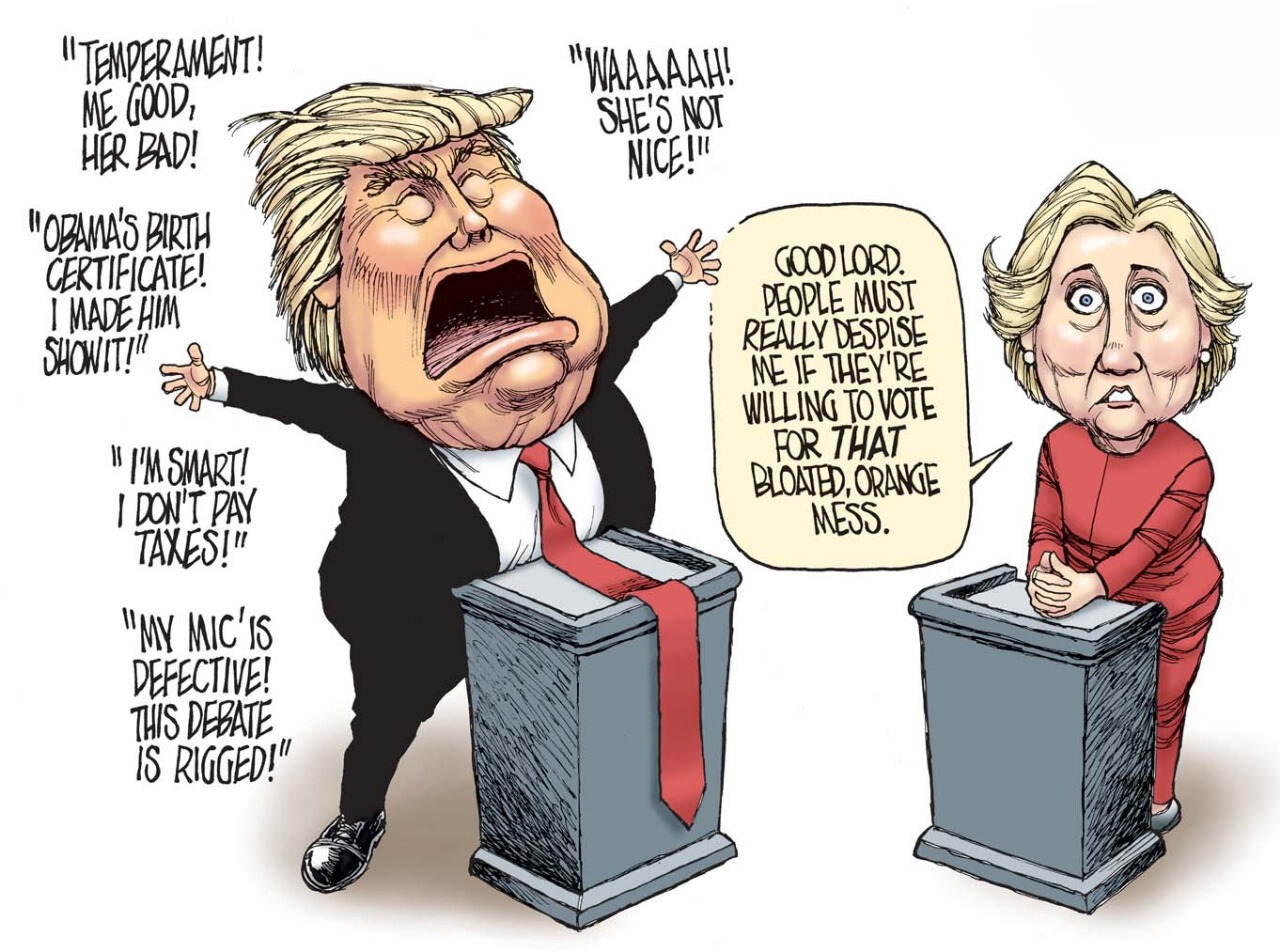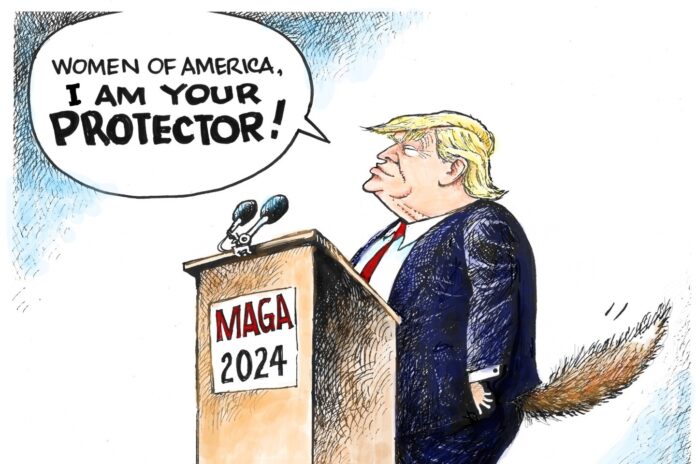The United States of America, often regarded as the lighthouse of development and the leader of the free world, has once again revealed its glaring contradictions. The results of the 2024 presidential election have revealed a truth that many would rather neglect but needs to come into light: the country, despite its might and its rhetoric of gender equality, is still fundamentally threatened by the idea of a woman at the helm. Donald Trump’s victory over Kamala Harris wasn’t just about political party loyalty or policies; it was about a mindset that runs deep in the American psyche—a mindset that seems incapable of fully accepting women in positions of ultimate authority.
For the second time in less than a decade, America had a chance to break a historical barrier and elect a woman as President. And yet, the majority chose Donald Trump—a man notorious for making crude, derogatory remarks and facing allegations of sexual misconduct. It seems that America’s decision in 2024, like in 2016 when Trump faced Hillary Clinton, was influenced less by policy differences or part preferences and more by an ingrained fear of women in leadership roles. This isn’t just about rejecting one woman or one party; it’s rejecting what a female leader represents in a male-dominated cultural narrative. America has yet again questioned a woman’s capabilities, but like all other things, in a very indirect way.

Kamala Harris, a woman of colour who served as Vice President for four years, faced the challenges of her policies being scrutinised and the burden of overcoming stereotypes and biases that America holds about women—especially women of colour. The fact that Kamala Harris, with her qualifications, competence, and experience, was deemed less fit to lead the United States of America than a man like Donald Trump, who has often publicly flaunted his disregard for women—reveals a profoundly troubling truth about the American voter’s mindset. It’s not just about gender. It’s about power and who society deems worthy of holding it.
The American public’s choice of Donald Trump over Kamala Harris reflects a more significant, more pervasive issue that extends beyond party lines. The United States is a country that likes to preach various lessons to the world, it thinks of itself as the land of opportunity, where anyone can succeed, and yet, when it comes to leadership, women are still expected to stay in supporting roles—Vice President, perhaps, but not President.
There have only been female Presidential candidates and no female President in America to date. In 2016, America refused to elect Hillary Clinton, despite her being arguably the most qualified candidate to ever run for office, opting instead for Trump, who was widely seen as unqualified. It was a choice that made clear what many feared: that America is not ready for a woman to lead.
Even though Kamala Harris’s candidacy should have marked a turning point for gender equality, her campaign was instead riddled with attacks not only on her policies but on her character and even her femininity. Unlike her male counterparts, Harris faced relentless questioning about her competence, emotionality, and even her personal life. A man in politics is judged on his actions and policies; a woman is judged on her entire being. When voters went to the polls, many ignored Harris’s achievements and focused on baseless stereotypes about women in power.
This mindset doesn’t just hurt women like Kamala Harris or Hillary Clinton—it hurts the country as a whole. America missed out, yet again, on a historic moment to lead by example and put its supposed values of equality into action. Instead, the world watches as the country falls back into the same outdated cycle: electing a man who is openly disrespectful towards women, who sees them as secondary, who is surrounded by powerful allies like Elon Musk, another man accused of sexual misconduct.
U.S. has elected a convicted criminal as its president, making him the 1st in U.S. history. Thus, it has failed as a country, which is the standpoint of success. Together, they represent a kind of old-world machismo that feels increasingly out of touch in a world where many countries are striving for absolute gender equality.
Take, for example, India. A country that Western nations, including America, have often looked down upon, portraying it as backward or less progressive. Yet India has had female leaders in positions of power at times when America couldn’t even fathom such a reality. Indira Gandhi became Prime Minister in 1966 and led India through turbulent times. Razia Sultan ruled Delhi in the 13th century, showing a kind of leadership strength that was rare anywhere in the world then.
India elected its first female president, Pratibha Patil, in 2007, followed by Droupadi Murmu in 2022. For all the criticisms that might be levelled at India, the fact remains: it has repeatedly shown that women can lead at the highest levels, something the so-called “modern” United States has failed to do even in the 21st century.

This election wasn’t just about policy differences but about a country revealing its true colours. In Donald Trump, the people chose a man who has been accused multiple times of sexual misconduct. They chose a leader who has openly disparaged women, including his daughter, objectifying her on a public platform. The fact that Trump’s history of crude remarks and inappropriate behaviour wasn’t enough to dissuade voters speaks volumes about what the American public is willing to tolerate—as long as the candidate is a man.
It’s easy to dismiss this as just another election result or to say that Kamala Harris wasn’t the right candidate for other reasons. But when the choice consistently falls to men who are openly misogynistic, who demean women without consequence, and who flaunt their power without regard for anyone but themselves, it’s impossible to ignore the more enormous implications. The superpower, the progressive America, promises equal opportunity for all, but when it comes to the most powerful office in the land, it seems that opportunity is still reserved for men.
The time for excuses is over. It’s time to confront the uncomfortable truth that, as progressive as America likes to think it is, there is still a fundamental resistance to the idea of a woman leading the nation. This isn’t just about Kamala Harris or Hillary Clinton. It’s about many women who perceive these elections as a reflection of their struggles—the glass ceilings that remain unbroken, the double standards that persist, and the biases that keep women from being seen as equal.

If America truly wants to lead the world, it must first take a long, hard look in the mirror and recognise that the barriers holding women back are not just about experience or qualifications. They are about profoundly engraved beliefs about gender, power, and leadership only belonging to men. It’s time for the country to live up to its promise of equality to show that leadership isn’t about gender but about competence, vision, and the ability to inspire. Until then, the myth of American progress remains just that—a myth.
The world is changing. Women are taking their rightful place as leaders in every field, from business to politics to science to sports. Time and time again, women have proven that they are equally capable, intelligent, and strong as their male counterparts. It’s time for America to catch up and recognise that its reluctance to elect a woman isn’t just an oversight—it’s a failure of the very values it claims to uphold and advocates to the entire world.
Until that happens, America will remain a powerful country with a degraded mindset, unable to fully embrace the progress it so often preaches to the rest of the world. And that’s the real tragedy—not just for America, but for everyone who looks to it as a beacon of hope and possibility. It is time that America stopped portraying itself as the flag bearer of modernisation when, in reality, it was all a mirage. The 2024 presidential election was a chance to make history. Instead, it became yet another missed opportunity, another reminder that true equality is still a distant dream in the land of the free. It’s time to change that narrative, and it’s time to do it now.


